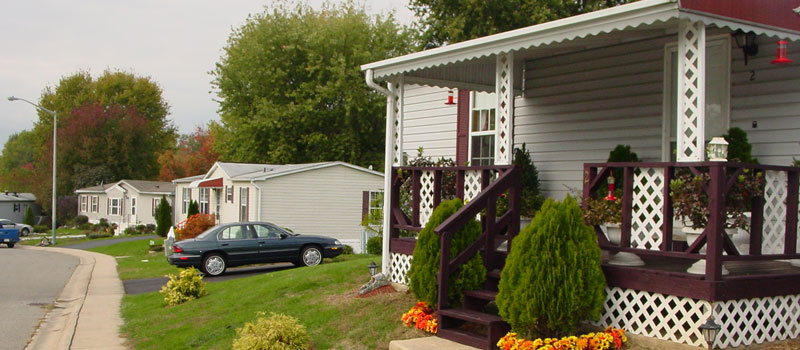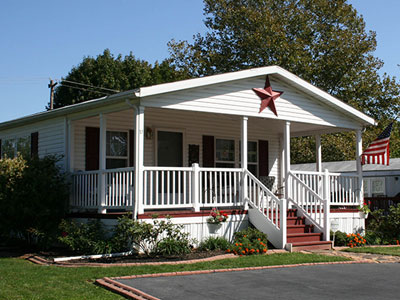
Design standards for mobile home parks can help preserve the character and integrity of a community, and promote the health, safety, and welfare of area residents.
How it Works
The Pennsylvania Municipalities Planning Code (MPC) requires municipalities to identify and zone land appropriate for mobile home parks. While mobile home parks have multiple benefits including providing affordable housing options, they can also present challenges unique from on-site built housing. One of these challenges can be integration with the character of the surrounding neighborhood. With appropriate guidance and regulation, municipalities can work to maintain both affordability and community character with mobile home parks.
Note that HUD (U.S. Department of Housing and Urban Development) establishes federal standards for the design and construction of manufactured homes (referred to in the MPC and this guide as mobile homes) built after June 15, 1976, which preempt all state and local building code regulations. Although similar to mobile homes, modular homes-pre-fabricated homes permanently affixed to the property with foundations-are not subject to the HUD regulations and instead are regulated through building codes.
Benefits
Affordable Housing
Mobile homes typically have lower purchase and rent prices than on-site built housing.
Aging Population Support
Mobile homes provide single-story, affordable homes for seniors.
Single Person Household
Given their smaller footprint and flexibility in installation, mobile homes can provide housing for single person households.
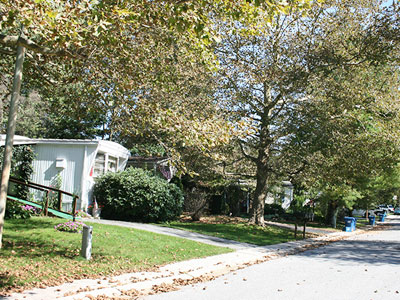
Sidewalks provide safety and convenience for pedestrians. Deciduous trees shade sidewalks and help moderate the temperature of homes.
Get Started
As noted, the Pennsylvania Municipalities Planning Code (MPC) requires municipalities to identify and zone land appropriate for mobile home parks. Local regulations should address appropriate standards in conformity to federal standards without creating unintended barriers for the development of mobile home parks. Issues to be considered and addressed when developing regulatory standards include:
- Zoning areas appropriately for mobile home parks with respect to reasonable densities, water and sewage facilities, site conditions, and access. Ideally, mobile home parks should be in proximity to employment centers, commercial services, and public transportation.
- Including regulations and design recommendations to promote landscaping, appropriate home placement, sidewalks, lighting, roadways, buffering, adequate setbacks, minimizing impervious cover, innovative stormwater facilities, public centered green space, siding, foundation design, and roof pitch within the zoning and/or subdivision and land development ordinances.
- Addressing issues specific to mobile homes including skirting, tie-downs, pads, and removal of hitches.
- Provision of common areas to provide and maintain green space, recreation options, and shared facilities. Municipalities should consider providing incentives and design guidance for the park layout and the creation and location of mobile home park green space.
- Consideration of allowing both mobile homes and mini-homes in the same area (see Mini-homes tool).
- Ensuring adequate access and utilities to and within both new and established mobile home parks.
- Allowing for the creation of smaller mobile home parks though decreasing the minimum tract size.
- Addressing the potential of property maintenance issues through code enforcement.
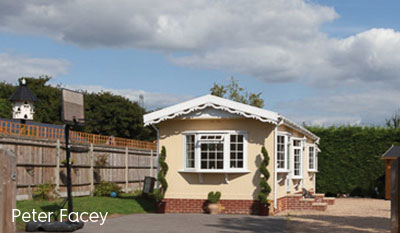
Screening material along the perimeter of a development, such as a solid fence or evergreen hedge, provides privacy, helps ensure compatibility with adjacent land uses, and enhances aesthetics.
Considerations
Potential Opposition
Older mobile home park construction often had limited regulation or consideration of development design. As a result, the public may have negative views towards mobile home parks.
Mobility
Although referred to as "mobile homes", the majority of mobile home units are permanently stationed. With few new mobile home parks being developed along with the high cost associated with moving mobile homes, mobile home residents may have difficulty relocating. This inability to easily relocate can make residents particularly susceptible to the raising of land rents.
Potential land-use conflicts
There could be local community concerns with the additional dwelling units and change in use. Concerns include loss of neighborhood property value, intensification of density, added traffic, and increased parking demands. Concerns related to a change from a non-residential use could include shifting to a "bedroom community" via loss of higher tax revenues from a commercial or industrial use, reduced opportunity for jobs, reduced institutional service and facility possibilities, and placing residential uses in what may otherwise be a largely non-residential area.
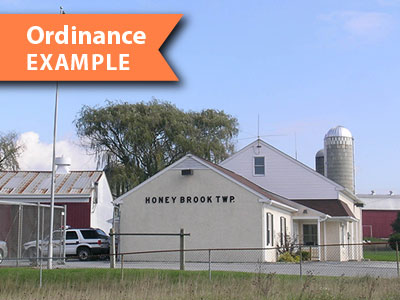
Honey Brook Township
Section 14-101 of the Honey Brook Township Municipal Code includes regulations for manufactured home parks.
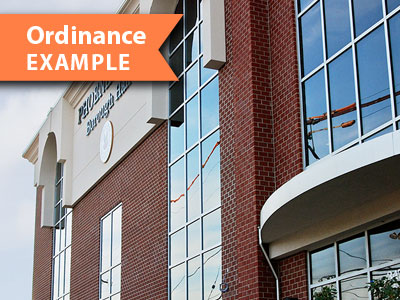
Phoenixville Borough
Section 22-429 of the Phoenixville Municipal Code provides standards for mobile homes and mobile home parks.
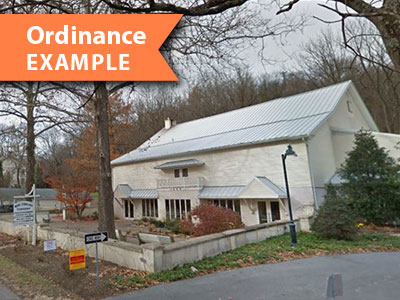
West Pikeland Township
Subdivision and Land Development Ordinance, Article 700 addresses mobile homes and mobile home parks.


